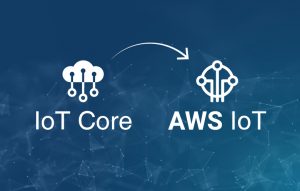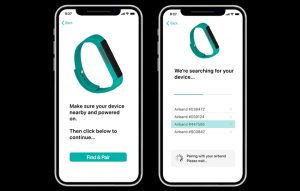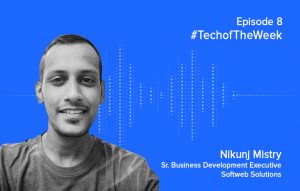The Internet of Things (IoT) is a buzzword in today’s world! It has reached to a level where it doesn’t need any introduction. In this modern world, the magic of IoT can do anything that humans want without human interaction.
In order to create wonders, a device has to be connected with another using the internet transfer protocol. The gap between the device sensors and data networks is bridged using an IoT platform with the help of backend apps to manage the data generated by hundreds of sensors.
When it comes to the platforms, the options are plentiful. A lot of companies are developing the IoT platforms to deploy the Internet of Things applications on the go. However, the startups that have just put the first step forward into the IoT platform development are way behind than Amazon and Microsoft, the top players of IoT platforms today.
Some of the best IoT platforms that are successfully running today are Amazon Web Services (AWS) IoT, Microsoft Azure IoT, ThingWorx IoT, IBM Watson, Cisco IoT Cloud Connect, Salesforce IoT Cloud, Carriots, Oracle Integrated Cloud, General Electric’s Predix and Kaa, to name a few.
Choosing a right IoT platform provider is not so difficult if you ask right questions to the provider before purchasing. So, here are the 8 questions that you must ask to an IoT platform provider before making a purchase.
1. How are you different and better than other IoT platform providers?
Out of so many IoT platforms available, choosing one can be difficult. However, one of the easiest ways to begin the quest is to look for the major differences between the platforms and to ask the IoT platform providers the USP of their IoT platform. For example: When the IoT platform providers were asked what sets them apart from others, they told that they offer ‘no coding’ techniques that can be used to build apps by ‘drag and drop’ functionality. However, this is not a unique feature, as almost every provider offers this. So, look for something unique and choose the one that offers the best platform as per your needs and requirements.
2. What types of data analytics are available?
Connected devices help you collect big data which can be then used to make better decisions for business. However, processing so much data sounds daunting and challenging. In order to uncover insights out of the data, it must be combined and analyzed. So, make sure you go for the platform that has delivers IoT analytic abilities. An IoT platform that can bring more insights to your organization is an ideal one. Choose the one that can conduct complex data analytics. Also, don’t forget that you are not data scientist, so it would not be able to decide the best analytics algorithm for the data set. So, choose the IoT platform that offers AI which will select the best data analysis algorithm automatically.
3. Will my IoT dashboards be customizable? How do I customize them?
Dashboard combines and analyzes data that matters to your business. So, choose your IoT platform in such a way that dashboard automatically acts based on the data insights and controls the devices in IoT. It should automate the interaction between the devices and apps. You must have the freedom to design your dashboard on your own as per your business requirements. Mostly all platforms have non-coding dashboard customization made using drag and drop tools. However, choose the one that offers you extra guided workflow. You must be able to export dashboard into HTM code so that you can use it in all browsers.
4. How does IoT data collection work?
Communicating with smart devices and collecting data from them is an essential part of any IoT platform. Data collection is a challenging task and not all IoT platforms can perform it right. All the IoT platforms face difficulty in data collection. Each of them overcomes this challenge in a different way. So, make sure you know about its data collection process before you choose one.
5. What about monitoring and controlling connected devices?
A lot of devices out there are segmented now on non-connected networks. With this segmentation, many core system devices apps are not possible with IoT. In order to solve this challenge, you will have to add an extra layer of communication protocols and APIs above the individual networks. Along with that, you must also add a control system that can relay instructions back and forth. This is exactly when IoT platform comes into the picture. Each individual network can control its proprietary things using an overarching IoT platform. So, the question is, “Who does perform this control over individual networks and devices?” A simple answer to this is ‘Rules Engine’ and logical instructions that a user writes within an IoT platform. Some of the examples of rules engine include AWS IoT’s Rules Engine, Cisco’s Jasper Control Center Rules Engine and Microsoft Azure IoT Hub, to name a few. The platform communicates with smaller networks for optimization, big data and system control opportunities.
The ultimate reason behind asking an IoT platform provider that how the platform monitors and controls connected device is to gain the deepest insights of compatibility problems that you might face in your current infrastructure.
6. How will your platform handle IoT security?
IoT security is one of the most important issues being discussed in the market now by consumers as well as businesses. The IoT platforms have a specific structure to secure data at every part of the system. All the components have got their own security options. For example, between the cloud and devices, there are a lot of options including traditional certificate-base methods, data packet encryption and network encryption between cloud and specific devices in a way similar to VPN. However, at the cloud level, everyone uses the SSL, a trusted gatekeeper; even banks use SSL. Standardization is important in security, as devices declare their identity to others and sadly, no IoT platform provider is able to provide ways to identify the device. Many of them also do not have identity to explain who made them. The question arises, “How should the devices offer that identity and certification?” So, it is extremely important for you to look for the IoT platform providers that specialize in certification. Most of the IoT platforms will use some form of certification technique.
7. Which IoT protocols does your platform support?
One of the most important questions to ask to your IoT platform provider is about the protocol compatibility and it will help you remove a few options from your shortlist right away. It is extremely important for the protocol to be compatible with your device otherwise the whole system will not operate. Of course, standardization or convergence on one communication protocol is difficult. One step ahead towards convergence can be achieved as IoT platforms move towards standard Ethernet. You will anyway have to know which protocols an IoT platform can or cannot use.
According to a survey, here are some of the IoT platforms along with the protocols that they are compatible with. Microsoft Azure is compatible with HTTPS, MQTT and AMQP. PTC ThingWorx is compatible with a lot of protocols like REST, MQTT, JDBC drivers, ADO drivers, XML, JSON file, CSV file, PTC’s AlwaysOn, Amazon’s IoT Service and Microsoft Azure’s IoT Hub. Cisco’s Jasper is compatible with GSM and 3GPP. AWS IoT is compatible with HTTP, WebSockets and MQTT protocols. Dassault Systèmes Netvibes is compatible with Samsung SAMI and HTTP API with OAuth Support.TheThings.iO is compatible with HTTP/HTTPS, MQTT and MQTT-S, CoAP, Websockets, Modbus, UDP and TCP. Autodesk SeeControl is comptaible with UDP, CoAP, MQTT, HTTP, XMPP, DDS and Modbus, to name a few.
8. Which IoT devices can be controlled? Is this more of an IoT or IIoT?
You will know the importance of the list of protocols mentioned in the previous point now. This list of compatible protocols will help you know for which devices an IoT platform is compatible with. You can also ask directly to IoT platform provider for the list.
By checking the list of devices compatible with the IoT platform, you can know whether that IoT platform specializes for consumer IoT or Industrial Internet of Things (IIoT). This is an important question to be asked to an IoT platform provider, as if you are targeting IIoT, you need to make sure that an IoT platform which you select has got the power and robust functionality so as to get the trust of industrial users. On the other side, if you are aiming consumer market, you will have to look for an IoT platform that focuses on usability.
Wrapping up
The above mentioned 8 questions will help you shortlist quickly and then choose the right IoT platform provider. Apart from these questions, you can also ask about the cloud storage options available for your IoT data as well as about licensing for you and your customers. The deeper you dig, the better IoT platform provider you will end up choosing.









